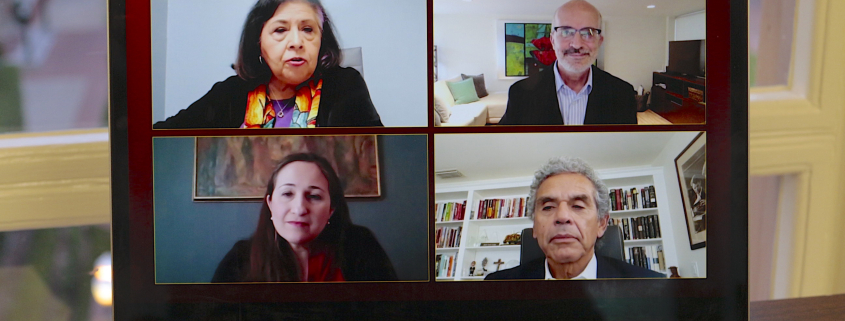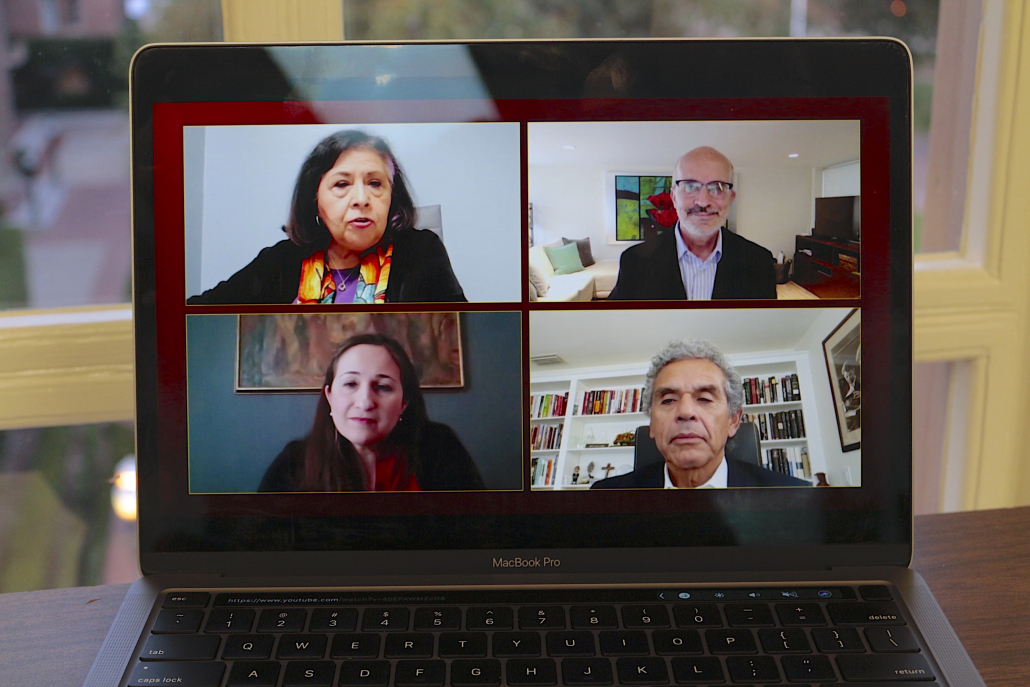Political experts discuss implications of Latinx vote
With varying viewpoints on politics and solutions to some of America’s most pressing problems, a panel of political experts were unanimous in their agreement on one thing: The growing impact of Latinx votes.
These experts discussed the the Latinx electorate’s influence on U.S. politics and culture at a virtual event Tuesday.
The Facebook Live discussion, hosted by the USC Latino Alumni Association and the USC Dornsife Alumni Association, featured three speakers — media strategist for various presidential campaigns Cesar Martinez, former Mayor of Los Angeles Antonio Villaraigosa and founder and director of the Center for Inclusive Democracy and Research Assistant at the Sol Price School of Public Policy Mindy Romero.
The panel, moderated by Gloria Molina, a fellow at the Center for the Political Future and a former Los Angeles County supervisor, looked to spark conversation and educate listeners about how Latinx voters have changed U.S. politics and the lasting effect their vote may have on the country.
The speakers discussed the importance of engaging Latinx voters and ensuring the Latinx community understands the voting processes and their impact.
After being asked what he believes could further mobilize the Latinx vote, Villaraigosa said he believes educating Latino children is the best way for the Latinx community to understand the role they have in this country. For Villaraigosa, children miss out tremendously when they believe they are not a legitimate part of the evolution of the United States, and, thus, need to be made aware of their worth through education. He credits some of his success to seeing other Latino politicians prosper.
“Some of us have been involved [in politics] since we were kids in the 1960s,” Villaraigosa said. “I’ve said at my inauguration in 2005, I stand on the shoulders of people like Maria Altorez and Richard Alatorre … We all come from the shoulders of others.”
According to the Pew Research Center, Latinos have become the second largest ethnic population in the U.S., rising rapidly over the past few decades. Despite their population increase in America, Latinx representation in the political sector has remained stagnant, Romero said.
“These issues are important for Latinos; they’re important for everybody,” Romero said. “The lack of representation, the fact that Latinos are growing in their share of the electorate but are still underrepresented.That matters not only to the Latino community in terms of voice, but also matters in terms of the strength of our overall democracy.”
Latinos tend to be somewhat divided in terms of policy and party voting, according to Martinez. Latinos make up the largest ethnic group in California, and, while the majority still tends to vote Democratic, this past presidential election revealed their shifting political views, as Trump received more Californian Latinx votes in the 2020 election than in 2016.
“I would tell Democrats not to take Latinos for granted, and I would tell Republicans ‘Stop bashing Latinos,” Martinez said. “[The Latino vote] is up for grabs and whoever is going to take more attention to us will start winning elections.”


